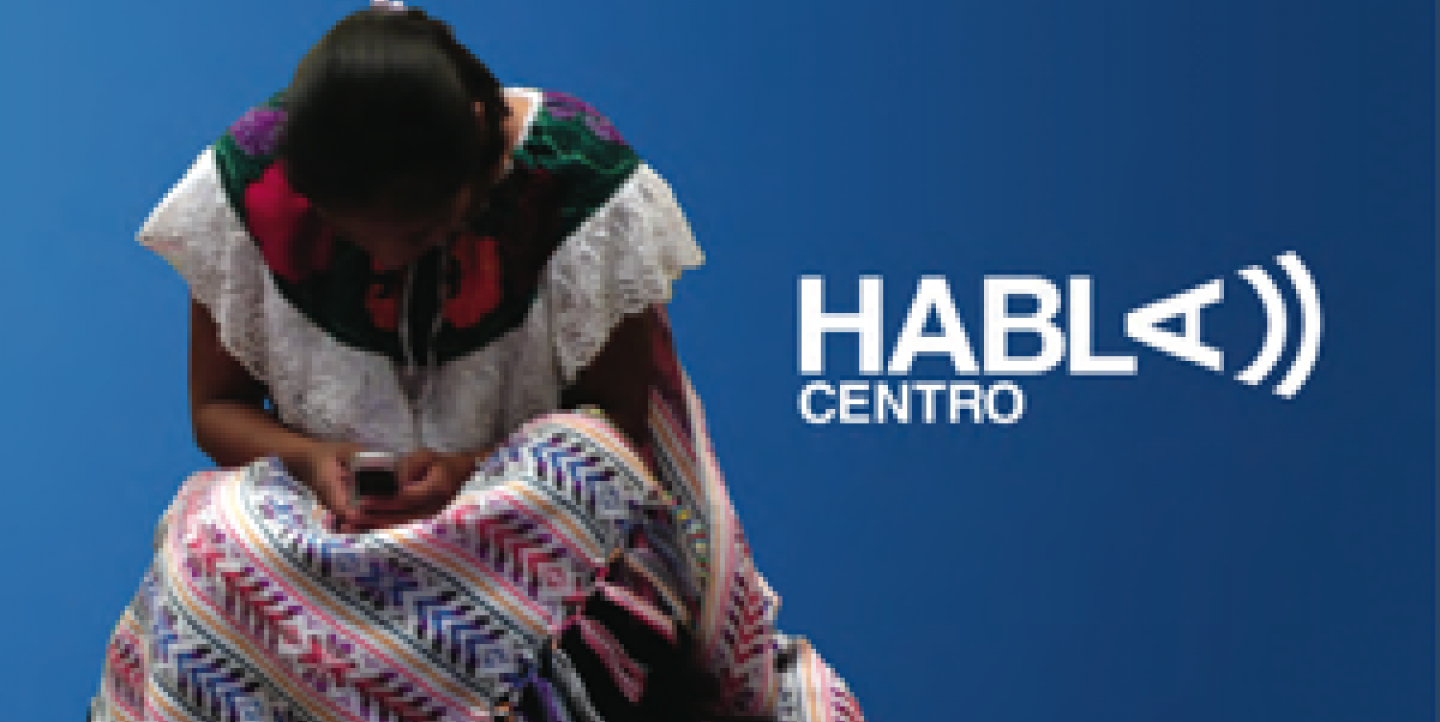Kara Andrade realized the impact of mobile communication while walking around in the Guatemalan jungle.
She was with a group of biologists covering the effects of drug trafficking in the jungle of El Petén, north of Guatemala. She observed how biologists climbed a hill next to a small Mayan pyramid in search of a cell phone signal.
Andrade was amazed that cell phones worked in such a remote area and she sent a message to her mom. A few moments later her mother answered from Tampa, Florida: “It’s so good to hear from you.”
That’s how Andrade came up with HablaCentro, a citizen journalism website powered by mobile tech that allows people to publish news and information useful for their communities. She realized that mobile phones are a very powerful communication tool in a country where cellphones outnumber people.
The launch date came out of necessity. It was Mother’s Day, May 2008 and Guatemalans were appalled by the murder of Rodrigo Rosenberg, a prominent lawyer.
TV stations aired a video in which Rosenberg said that if viewers were watching the video it was because he had been murdered. Rosenberg claimed Álvaro Colom, Guatemala’s president, was responsible for his death.
“It sent the country into a temporary crisis,” said Andrade, now 34, in an interview conducted in Spanish with IJNet. “People took to the streets protesting and demanding answers from the president about this case.”
The case ended as shockingly as it started: Rosenberg had arranged and paid for his own murder to implicate Colom. “Nothing is what it seems in Guatemala,” Andrade said.
A Berkeley alumni, Andrade, who has lived in the U.S. since she the age of six, funded the project with fellowship from Ashoka.
During the crisis spurred by Rosenberg’s death, Guatemalans demanded answers and information and HablaGuate tried to provide them.
Through their mobile phones, people post stories ranging from denouncing drug-related crimes to promoting the premiere of a new movie. The access to technology and the project’s model creates a bottom-up flow of information.
“People understand now that they don’t need to wait until a journalist from a well-known medium comes to interview them in order to tell their story. Now they can tell their story though Wordpress, Twitter, Facebook and Tumblr,” Andrade said.
Users can access the site through the Internet, through Twitter, Facebook and via email and, of course, through their mobile phones. Reports can be anonymous.
The project has since expanded to four countries: Honduras, Costa Rica, Venezuela and El Salvador. Mexico is next. The site currently has 500 registered users in five countries. Plans to work with Mi Panama Transparente, a similar crowdsourced website are also in the works.
In some countries, the site made news because of emergencies coupled with dissatisfaction with mainstream media. For example, HablaHonduras came about when a coup ousted then-president Manuel Zelaya only a month after the Guatemala site launched.
People in Honduras contacted Andrade via Facebook and Skype, wanting to replicate the project there to get the facts straight since the mainstream media wasn’t publishing much about it, according to Andrade.
“Media owners come from a minority of the wealthy,” said Andrade. “Our goal is to create an informed community that provides information and support to a Government that really works for the people.”

